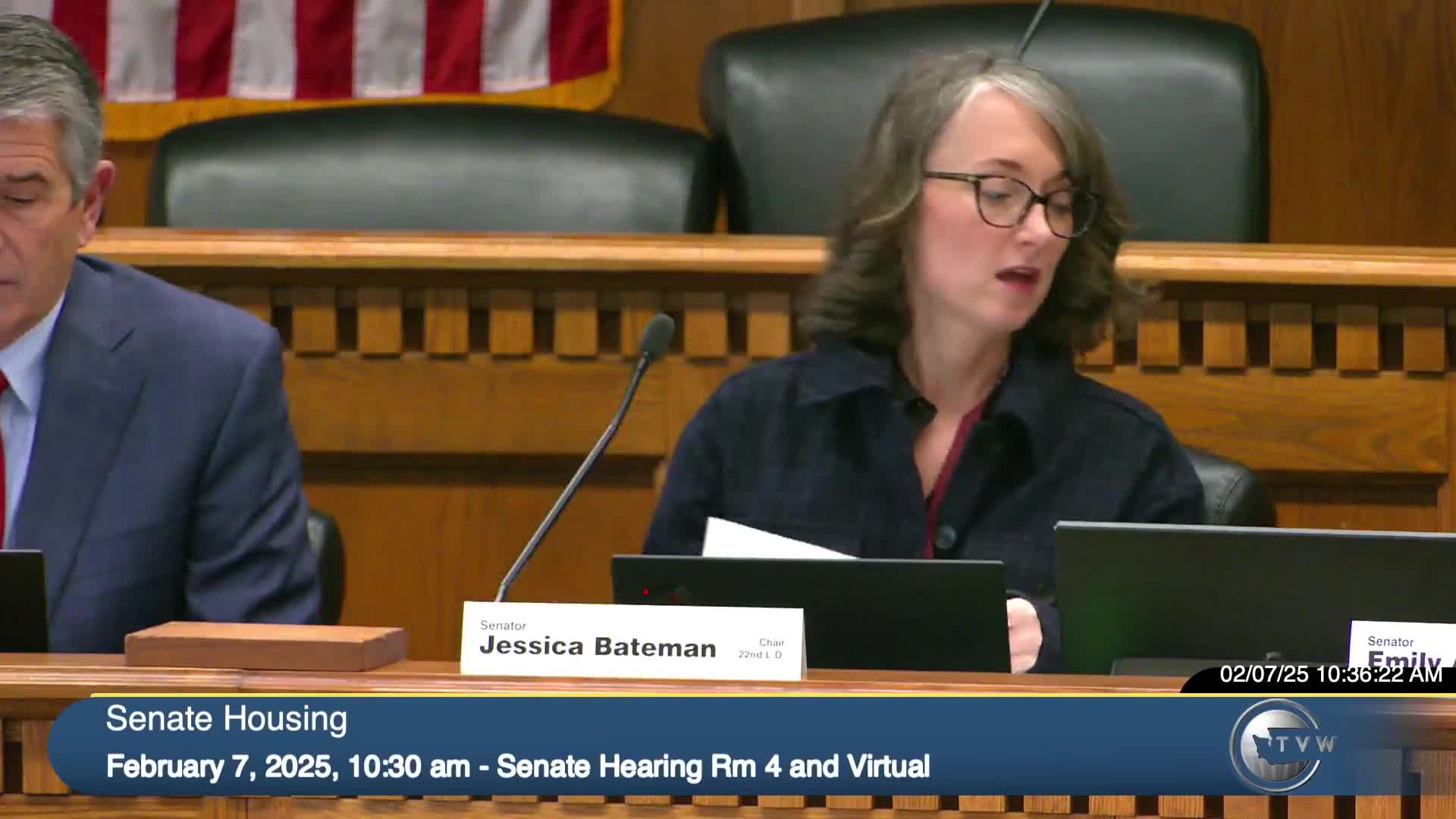Senate bill 5587 would require county housing-gap reporting and limit local permit denials for affordable projects
Get AI-powered insights, summaries, and transcripts
Subscribe
Summary
Senate Bill 5587 would require biennial county-level analysis of estimated housing units and needs by income level and would constrain local denials or conditioning of affordable housing developments where county gaps persist.
Senate Bill 5587, sponsored by Sen. Annette Cleveland, would expand state housing reporting and impose constraints aimed at speeding and protecting affordable housing development in counties identified as having gaps between existing housing units and estimated needs.
At a Feb. 7 public hearing before the Washington State Senate Housing Committee, committee staff summarized the bill’s core elements: the Washington Center for Real Estate Research would be required to include in its biennial report an analysis, by county and income band, of estimated existing units versus housing needs; the report would also assess progress on emergency shelter and permanent supportive housing capacity. Where a county’s gap has not decreased from the prior year, the bill would prevent a county or any city within it from denying an affordable housing development — or imposing conditions with a substantial adverse impact on viability or affordability — except in narrowly enumerated circumstances. The bill would also require local jurisdictions to prioritize permits for qualifying affordable housing projects and add “encourages infill development” as a Public Works Board prioritization factor.
Sen. Annette Cleveland, prime sponsor, framed the bill as a transparency and accountability measure: "you don't change what you don't measure," she told the committee, saying the bill aims to track meaningful data so state and local efforts can be judged against outcomes. The staff fiscal note had been requested but was not yet available at the hearing.
A broad pro panel — including Washington Realtors, the city of Vancouver’s housing director, community advocates, county leaders and representatives of development interests — endorsed the bill’s goals of better data and increased housing production. Testimony in support noted the need to measure production by income band and to use the data to target resources. Clark County Democrats’ Donna Sinclair described the lack of current annual measurement of the affordable housing gap and urged the committee to act, recounting personal experience as a single parent whose small home provided long-term security.
The Washington State Association of Counties expressed support for many bill elements but raised concerns about section 2. County representatives told the committee counties lack authority over private developers and city zoning decisions, and flagged practical difficulties in matching proposed density and occupancy to neighborhood locations and in long-term affordability auditing of private projects. They recommended using Department of Commerce processes for compliance monitoring or adding clarifications in the bill.
Several builders and planning stakeholders testified that more consistent, statewide data and clear expectations would help direct local efforts. After a lengthy public record — the vice chair reported 280 pro sign-ins, 54 con, 6 other — the committee closed the hearing and later moved to executive actions on a separate set of bills.
